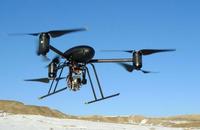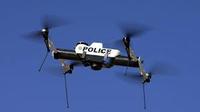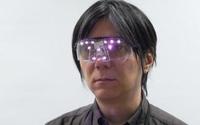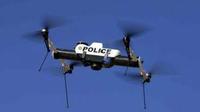-
Seattle mayor says no to drones

Seattle mayor Mike McGinn has shut down the Seattle Police Department’s drone program before it started. McGinn said the police need to stay focused on “community building.” The announcement came just one day after the city held a public hearing to discuss restrictions to be imposed on drone use by the police departments. Many citizens voiced their concerns about possible violations of privacy.
-
-
Legislation to require Internet privacy baseline not around the corner
The European Union has set tough privacy protection laws and is even considering a proposal which would set even stricter requirements on Internet companies, including allowing users to access and delete data collected on them. The United States, however, has very few privacy protection laws. Some argue this is a good thing.
-
-
DNA sequencing a serious risk to privacy
The growing ease of DNA sequencing has led to enormous advancements in the scientific field. Through extensive networked databases, researchers can access genetic information to gain valuable knowledge about causative and preventative factors for disease, and identify new targets for future treatments. The wider availability of such information, however, also has a significant downside — the risk of revealing personal information. New study finds that new policies are needed to safeguard participants’ identity in genetic studies.
-
-
More states consider laws to limit the use of drones by police

The Federal Aviation Administration (FAA) appears ready to allow the use of drones in the United States, by both law enforcement agencies and private citizens, almost with no restrictions. Experts predict that by the end of the decade, there will be about 30,000 drones flying over the United States. Legislators in at least eleven states want to impose limits on the use of UAVs as worries grow that the unregulated use of drones would erode the liberties of Americans.
-
-
Facebook new search feature has cyber experts worried
A new Facebook search feature has security experts concerned. They are warning users of the site to strengthen their security settings to avoid embarrassment and to protect themselves from cybercriminals.
-
-
Google wants to limit law enforcement’s access to e-mails, users’ information
In 2012 Google received 16,407 requests for user data, which affected 31,072 users or accounts. More than half of the requests were accompanied with a subpoena, the others were not. Google is planning on lobbying Washington this year to persuade lawmakers that they should make it harder for law enforcement to gain access to e-mails and other digital messages.
-
-
New Hampshire bill would limit searches, expand expectation of privacy

New Hampshire State Representative Neal Kurk ® says state residents do not expect,when they throw something out in their trash or leave a drinking glass with their saliva on it at a public place, that law enforcement, insurance companies, or data miners would use the trash left behind to glean personally identifiable information.
-
-
Twitter’s information policy frustrates police, delights customers
Twitter’s robust approach to customers’ privacy has caused consternation among law enforcement agencies, who say that Twitter’s refusal to hand over information on users of the service, except in rare cases, has frustrated criminal investigations. Twitter’s user, though, appreciate the company’s scruples.
-
-
Thwarting facial-recognition, photo-tagging software

Information about when and where photographed subjects were when their pictures were taken is readily disclosed through photos taken, and the information is disclosed and distributed without their permission. The problem has become even worse due to the popularization of portable terminals with built-in cameras and developments in SNS and image search technologies. Japanese researchers offer a solution: goggles or glasses which, when equipped with near-infrared LED emitter. :
-
-
Personal genetic information vulnerable to hacking
Using only a computer, an Internet connection, and publicly accessible online resources, a team of researchers has been able to identify nearly fifty individuals who had submitted personal genetic material as participants in genomic studies.
-
-
Police depts. reviews policy on retaining data from license plate readers
License plate readers (LPRs) have been used more and more by law enforcement agencies across the United States, but as they gain popularity in law enforcement, they have become the subject of debate, and concern, in many local governments.
-
-
Instant DNA analysis worries privacy advocates
In the past, it took weeks to analyze a person’s DNA, but with new technology it can take less than a day, and in most cases less than two hours; Rapid DNA analyzers can process a DN sample in less than ninety minutes; these machines, the size of a household printer, are now being marketed to local, state, and federal law enforcement agencies around the country; privacy advocates worry
-
-
Proliferation of license plate readers worry privacy advocates
Automated License Plate Recognition (ALPR) technology has taken off in recent years, and the police says it is the greatest innovation since fingerprints and DNA; the technology has changed the way police finds cars connected to crimes, but in the process it has upset many privacy advocates
-
-
Privacy advocates succeed in delaying drone purchase by California country sheriff

Congress earlier this year passed legislation earlier this year ordering the Federal Aviation Administration (FAA) to accelerate the approval of the use of unmanned aerial vehicles (UAVs) for law enforcement and other domestic purposes, and, law enforcement agencies around the country are moving to purchase drones; Alameda Country, California planned to buy a drone, but action by the ACLU and the Electronic Frontier Foundation forced the county to hold a public hearing on drone use and formulate guideless for, and set limits on, drone use by police
-
-
U.S. skies may soon be open to drones
Unmanned drones are cheaper than manned aircraft and can be used in a variety of ways, such as assessing environmental threats and damage from natural disaster, tracking criminals trying to escape on a highway, and assessing wildfires; according to an FAA prediction, 30,000 drones could be flying in the United States in less than twenty years; lawmakers and privacy advocates want the use of these drones more tightly regulated
-
- All
- Regional
- Water
- Biometrics
- Borders/Immig
- Business
- Cybersecurity
- Detection
- Disasters
- Government
- Infrastructure
- International
- Public health
- Public Safety
- Communication interoperabillity
- Emergency services
- Emergency medical services
- Fire
- First response
- IEDs
- Law Enforcement
- Law Enforcement Technology
- Military technology
- Nonlethal weapons
- Nuclear weapons
- Personal protection equipment
- Police
- Notification /alert systems
- Situational awareness
- Weapons systems
- Sci-Tech
- Sector Reports
- Surveillance
- Transportation
Advertising & Marketing: advertise@newswirepubs.com
Editorial: editor@newswirepubs.com
General: info@newswirepubs.com
2010-2011 © News Wire Publications, LLC News Wire Publications, LLC
220 Old Country Road | Suite 200 | Mineola | New York | 11501
Permissions and Policies
Editorial: editor@newswirepubs.com
General: info@newswirepubs.com
2010-2011 © News Wire Publications, LLC News Wire Publications, LLC
220 Old Country Road | Suite 200 | Mineola | New York | 11501
Permissions and Policies
